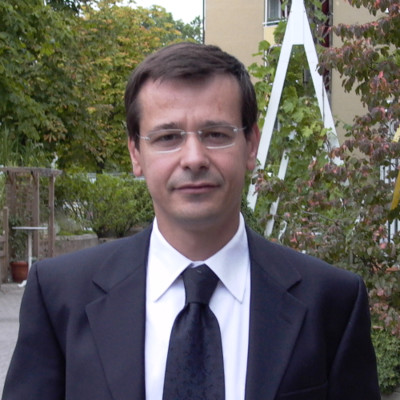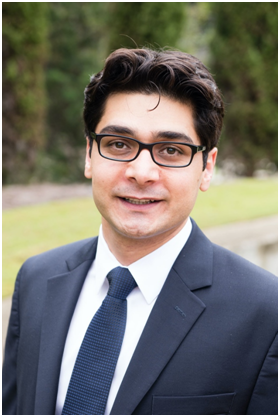Invited Speakers
Dr. Jennifer Q. Trelewicz
TGPO Consult, Ltd., RussiaSpeech Title: Big data approaches for cybersecurity: special considerations
Abstract: Cyberattacks are nothing new, but the last few years have seen sharp growth in the frequency and severity of attacks. In particular,
• The total volume of cyberattacks grows on the order of 11% per year;
• Data leaks (including personal data) are expected to increase 20% from 2022-2023 in frequency and 10% in volume;
• Some estimates indicate that damage from cyberattacks will reach about 10.5 trillion USD by 2025, a 300% increase over 10 years.
Traditional means for cyberprotection have flaws in dealing with new threats, both in protecting from cyberattacks, as well as in not interfering with the work of legitimate users of websites and other network resources. Big data and machine learning approaches are being employed to address these shortcomings, but must be used with a careful understanding of the context to be effective.
In this talk I will show traditional defence means, as well as new approaches, based on Big Data and machine learning technology, including information from real cases of recent attacks. You will learn about some of the special considerations for performing research and doing development in this field, that are needed for appropriate and effective results. My talk is designed for technical developers and researchers in the field, as well as for managers, who need to understand the different types of defences and the need for deployment.
Keywords: Big data, Cybersecurity
Dr. Giuseppe Orlando, Professor
Department of Economics of the HSE University and at the Department of Mathematics (DM) of the University of Bari, ItalySpeech Title: Managing the skew: A tracking error constrained replicating portfolio with minimum assets
Abstract: Passive asset management has emerged in the last decades because, in most cases, active portfolio managers are not able to beat their benchmark. Skewed distributions are witnessed every day in financial markets and the need to model them is gaining momentum. This article deals with passive management of skewed distributed assets and suggests how to build a portfolio with a tracking error constrain while minimizing the number of holdings necessary to track the benchmark. In addition, the suggested model provides a conservative estimate of the tracking error and, thus, does not require an adjustment to prevent a breach of the risk budget.
Keywords: Index tracking, Passive fund management, Optimization technique, Tracking error, Skewed distributions
Dr. Henrik Sørensen, Associate Professor
Department of Management, University of Aarhus, DenmarkSpeech Title: Small- and Medium-Sized Enterprises Strategizing Digital Transformation: Backend & Frontend Integration for Horizontal Value Creation
Abstract: The research shed light on how Small and Medium-sized Enterprise (SME) Board of Directors (BOD) and Chief Executive Officer (CEO) strategize digital transformation for value creation. The research is based on participative action research (PAR) conducted with 20 SME Chairman of the BODs and CEOs during 2018-2019 to reveal their aim for frontiers in digital transformation. The findings show that SMEs strategize digital transformation for value creation along different paths depending on SME business process context. However, the essential frontier for SME BOD and CEO is found in the horizontal combination of frontend face-to-face & digital products/service processes with backend face-to-face & digital system platform processes to reach for collaboration with external network actors. Digital and face-to-face processes are perceived as interwoven for value creation. The SME BOD and CEO aim for new forntiers to integrate horizontal leadership through strategizing organisational- and network development processes to create value across ecosystems. This goes beyond hitherto literature- and practice understanding of digital transformation as a top-down process emphasizing the coordination role of senior management in the SME. A new frontier for horizontal leadership to organize digital transformation is hereby empirically revealed.
Dr. Omid M. Ardakani, Associate Professor
Parker College of Business, Georgia Southern University, USASpeech Title: On the dependence structure of consumer attitudes and spending
Abstract: Do consumers overreact during a crisis for psychological reasons? This paper provides a unique framework for modeling the dependence structure between consumer attitudes and spending. We examine this dependence using the statistical notion of copulas. Specifically, marginal distributions of consumer confidence and spending are first modeled. The University of Michigan’s Consumer Sentiment Index serves as a proxy of consumer confidence, and real Personal Consumption Expenditure is utilized as a measure of consumer spending. Then copulas are fitted to the marginal densities to model their dependence. The empirical analysis focuses on this dependence during times of crisis, with particular attention given to the period surrounding the COVID-19 pandemic. The findings show comovements between consumer confidence and spending, such that consumer confidence coincides with expenditures. Results further suggest that the dependence between these two indicators has intensified during the COVID-19 pandemic. In addition, uncertainty during the pandemic is captured through tail dependence.
Keywords: Copula, COVID-19, consumer confidence, consumer spending, dependence structure, uncertainty




